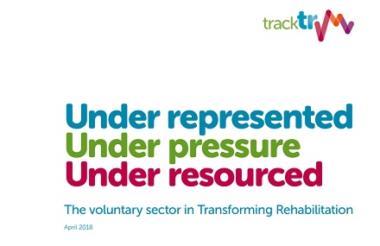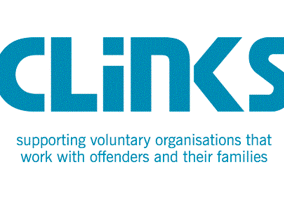The government’s £900m Transforming Rehabilitation (TR) programme has failed in its aim to boost charity involvement, according to a new report.
Umbrella body Clinks has been reviewing the programme’s delivery since it launched in 2015, and its latest report shows an increasingly negative response from charities providing rehabilitation services.
Rehabilitation services are procured through the National Probation Service (NPS) and 21 regional community rehabilitation companies (CRCs) using a mechanism called a rate card.
Clinks' latest survey found only 35 per cent of the 132 organisations it surveyed had received any funding from CRCs, and only two organisations got funding from the NPS.
The survey found the majority of charities over £10m were getting some CRC funding, while most smaller organisations are providing support to offenders with no funding from probation services.
Half of the organisations receiving CRC funding reported that their services were unsustainable, with a third using their own reserves to subsidise services.
The problems appear to be increasing as 30 per cent of CRC-funded organisations reported a decrease in their funding during 2016/17.
Similarly, 37 per cent of charities that were not funded by CRCs reported a decrease in their funding during 2016/17.
Many of these unfunded charities reported feeling “used” by the system to meet targets, as the majority of these still received referrals from the NPS (58 per cent), CRCs (64 per cent), and prisons (71 per cent).
Only 15 per cent of respondents said the TR programme had a positive impact on service users.
'Take urgent steps to improve the system'
Charity leaders urged the government to take action.
Anne Fox, chief executive of Clinks, said: “In February 2015 the Ministry of Justice heralded a new age for probation services, assuming that the 700 charities or social enterprises named in bids to run new probation services would be able to dramatically reduce reoffending rates.
“Three years on, it’s clear these organisations have not been able to play their part. The handful of larger charities that were able to negotiate a deal with new probation services are concerned that services are under-funded and as a result the quality they are able to deliver is not as they would wish.
“Up and down the country, charities, large and small, are using their charitable funds to cover the costs they need to support a stretched probation system. This approach can’t continue.”
Karl Wilding, policy director at NCVO, said: “There are persistent structural problems with the design of Transforming Rehabilitation that mean the very organisations the probation system relies on are shut out and left in economically unsustainable positions, with an ultimately concerning outlook for those that rely on these services.”
Jacob Tas, chief executive of Nacro, said: “The government has rightly recognised that the reforms have not delivered as expected, but they must now take urgent steps to improve the system by ensuring the focus is fundamentally on changing lives and reducing reoffending; that the funding is sufficient to deliver high quality and effective services; and that the voluntary sector is able to play a more substantial role.”
|
Related articles












